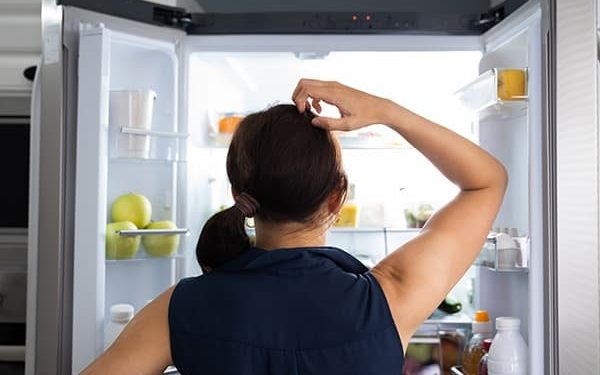A refrigerator that isn’t keeping your food cold is more than just an inconvenience – it can quickly become a costly disaster. From spoiled groceries to potential safety hazards, a malfunctioning fridge demands immediate attention. But before you panic and assume the worst, let’s explore the most common reasons why your refrigerator might not be cooling properly.
In this post, we’ll walk you through the top five causes of cooling issues and explain why contacting a local appliance repair company like D.R. Express Service Appliance Repair in Sarasota, FL, or City Appliance Repair in San Francisco, CA, is your best bet for a fast, safe, and lasting fix.
1. Dirty Condenser Coils
What Are They?
Condenser coils are usually located either at the back or beneath your refrigerator. Their job is to release the heat that your fridge extracts from inside the appliance. When these coils are clean and free from debris, they work efficiently to keep the internal temperature where it should be – cold.
Why They Cause Problems
Over time, these coils can become coated with dust, pet hair, and kitchen grime. This insulation effect causes the compressor to work harder, often leading to overheating or premature breakdown. As a result, the fridge struggles – or fails – to maintain the correct temperature.
Signs to Watch For
- Warm interior despite motor noise
- Hot spots on exterior walls
- The fridge is running constantly without cycling off
Why Call a Pro?
Cleaning coils sounds simple, but not all models are easy to access. A trained appliance repair technician can quickly inspect and clean them without damaging internal components, and may notice other issues while they’re at it.
2. Faulty Evaporator Fan Motor
What Is It?
The evaporator fan motor circulates cool air throughout the fridge and freezer. If it malfunctions, the cold air generated by the evaporator coils can’t be distributed efficiently, leading to uneven or insufficient cooling.
Why It Fails
Wear and tear, power surges, or obstructions like ice buildup can stop the fan from spinning. Sometimes, the motor burns out entirely.
Warning Signs
- The freezer is still cold, but the fridge section is warm
- Unusual noises coming from the freezer
- The fridge is not maintaining a consistent temperature
Why Professional Repair Matters
Diagnosing and replacing a faulty evaporator fan motor requires disassembling part of your fridge’s interior. A local appliance repair expert can not only perform this repair safely but also verify that the fan issue isn’t a symptom of a deeper problem, like a failing defrost system.
3. Defective Thermostat or Temperature Control Board
What Does It Do?
The thermostat or control board is responsible for regulating the temperature inside the refrigerator. It tells the compressor and fans when to turn on and off based on the settings you’ve selected.
Why It Malfunctions
Like any electronic component, thermostats and control boards can wear out or become damaged due to moisture, corrosion, or manufacturing defects. A faulty thermostat may incorrectly signal that the interior is cold enough, even when it’s not.
Clues Your Thermostat Is Broken
- The fridge feels warmer or colder than the set temperature
- Display screen flickering or showing error codes
- No response when you adjust temperature settings
Why Call a Technician?
Diagnosing thermostat or board issues involves electrical testing and a solid understanding of your appliance’s circuitry. A qualified technician can confirm if a faulty control unit is the root cause, or if there’s an underlying issue like sensor failure.
4. Low Refrigerant Levels or Leaks
Why Refrigerant Is Essential
Your fridge cools through a closed-loop refrigerant system, typically using R134a or R600a. The refrigerant absorbs heat from inside the fridge and releases it outside through the condenser coils.
Causes of Low Levels
Refrigerant doesn’t get “used up” over time. If levels are low, there’s a leak in the sealed system. This could be due to cracked tubing, a punctured evaporator coil, or a failing compressor seal.
What to Look For
- The fridge is warm, but the compressor runs constantly
- Oily residue on the floor or around the compressor
- Hissing or bubbling sounds
This Is NOT a DIY Job
Handling refrigerants requires EPA certification. Improper handling is dangerous and illegal. Only licensed appliance repair professionals can test for leaks, seal them properly, and recharge the system to the correct level.
5. Malfunctioning Compressor
The Heart of Your Fridge
The compressor is the powerhouse that pumps refrigerant through the cooling system. If it fails, the entire system shuts down. You may still hear clicking or humming, but the fridge won’t cool.
Reasons It Fails
- Electrical issues like power surges
- Dirty coils are causing overheating
- Age and general wear and tear
Symptoms of Compressor Trouble
- Loud clicking or buzzing noises
- The fridge is not cooling at all
- Compressor hot to the touch
Why This Requires Immediate Attention
Replacing a compressor is a complex and costly repair. Sometimes, it’s more cost-effective to replace the fridge entirely. A reputable appliance repair company can provide an honest assessment and help you decide what makes the most sense financially.
When to Call a Local Appliance Repair Company
You might be tempted to troubleshoot or fix some of these issues yourself. While it’s fine to do a little basic inspection (like checking for obvious dust buildup or power supply issues), most refrigerator cooling problems require specialized knowledge and tools.
Here’s Why You Should Call a Pro:
- Safety First: Appliances involve electricity, moving parts, and sometimes hazardous materials like refrigerant. An expert knows how to work safely.
- Proper Diagnosis: A technician can run a full diagnostic to pinpoint the exact issue instead of relying on guesswork or trial and error.
- Right Tools & Parts: Professionals come equipped with the tools and replacement parts your specific model needs, saving you from multiple trips to the hardware store.
- Warranty Protection: Many repairs must be performed by licensed technicians to keep your warranty valid.
- Prevent Bigger Problems: A local appliance repair company can catch minor issues before they snowball into expensive breakdowns.
- Establish a Maintenance Routine: After a repair, many reputable technicians offer refrigerator maintenance plans or recommendations tailored to your fridge model. Regular checkups, such as inspecting seals, cleaning coils, and calibrating temperature sensors, can extend the life of your appliance and ensure it runs efficiently.
How to Choose the Right Repair Company
Not all repair services are created equal. Here’s what to look for when selecting a local provider:
- Certified Technicians: Ensure they’re licensed and insured.
- Experience with Your Brand: Ask if they’ve worked on your specific refrigerator model.
- Transparent Pricing: Look for flat-rate diagnostic fees and upfront repair quotes.
- Good Reviews: Check Google, Yelp, and other review platforms.
- Prompt Service: A fridge not cooling is an urgent matter – choose someone who can offer same-day or next-day service.
Conclusion: Don’t Delay – Your Food and Your Wallet Are at Risk
A refrigerator that isn’t cooling is more than a minor inconvenience – it’s a sign that something inside your appliance needs attention, and fast. While some causes are relatively simple, many require skilled hands and professional-grade tools to diagnose and repair correctly.
Instead of taking a gamble with DIY fixes, save yourself the stress and potential expense by calling a trusted local appliance repair company. Their expertise ensures that your refrigerator will be running cold and smooth again, without risking further damage or safety hazards. If your fridge is acting up and you’re unsure what to do next, contact a licensed appliance technician in your area today. Peace of mind – and chilled groceries – are just a call away.


![7 Best POS Software in the UK [2026 Edition]](https://todaynews.co.uk/wp-content/uploads/2026/02/7-Best-POS-Software-in-the-UK-2026-Edition-360x180.png)








































































